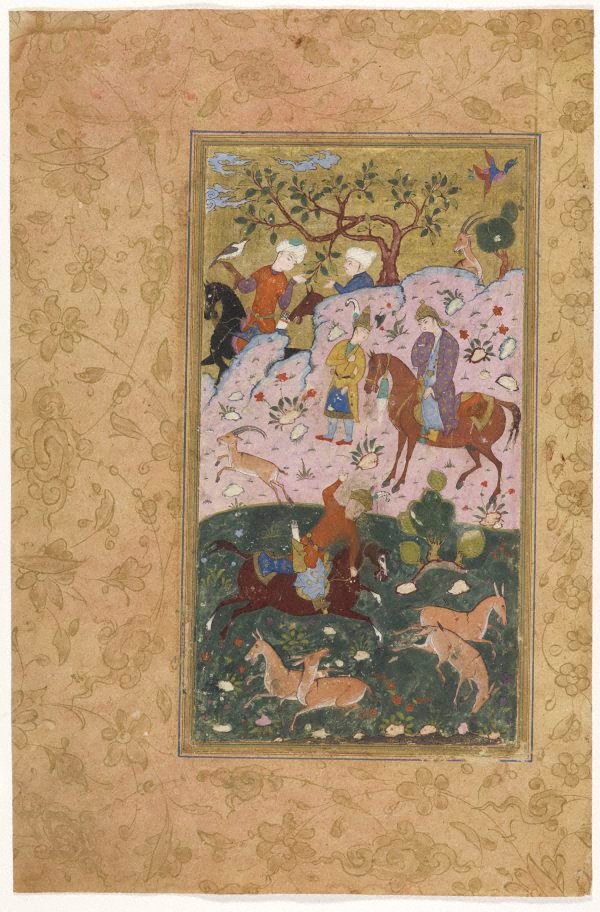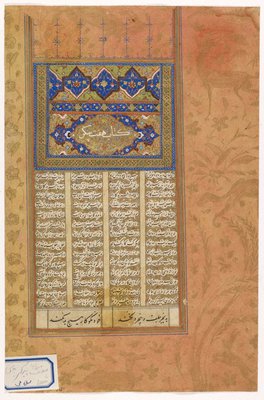-
Details
- Other Title
- recto: Bahram Gur shooting two asses, left side of a frontispiece from a manuscript of the Haft Paikar
- Place where the work was made
-
Iran
- Cultural origin
- Qazvin or Shiraz
- Date
- late 16th century
- Media categories
- Painting , Miniature , Manuscripts
- Materials used
- opaque watercolour on paper
- Dimensions
- 20.5 x 11.5 cm
- Credit
- Gift of Dr Nigel and Mrs Norma Hawkins 2010. Donated through the Australian Government's Cultural Gifts Program
- Location
- Not on display
- Accession number
- 12.2010
- Copyright
- Share
-
-
About
Whilst originating in what is now Iran, the traditions of Persian poetry and story-telling through text and illuminations held a great sphere of influence over neighbouring empires. Patrons of the Ottoman Turks and the Indian Mughals commissioned poets and artisans to retell the dramatic episodes of love in the courts and bloodshed on the battlefields. A number illuminate the Persian epics that celebrate love and heroism such as the Shahnama (Book of Kings) completed by Abu’l Qasim Firdausi in 1010 CE and the Haft Pakyar (The seven beauties) written by Nizami Ganjavi in 1197. While the works remain secular they are laden with moralistic and legendry tales laced with historical figures and events. A hero of both epics is Bahram Gur whose character derives from the historical Sasanian king, Bahram V.
-
Places
Where the work was made
Iran
-
Bibliography
Referenced in 2 publications
-
Matt Cox, Look, ' A gift fit for kings', pg 8-9, Sydney, Apr 2014, 8 (colour illus.).
-
Sotheby Parke Bernet & Co. (Editor), Sotheby's spring Islamic sales: Catalogue of fine oriental manuscripts, miniatures and Qajar lacquer, London, 22 Apr 1980, 80. lot no. 21
-

